Traitor Andriy Derkach misused company funds and built churches of the Moscow Patriarchate in all cities with nuclear power plants
Ms. Olga, first of all, I would like to hear your assessment of this investigation as of now, because news is coming in literally every hour. Let's start with the connection to Moscow.
Energoatom was once headed by Andriy Derkach, who is accused of treason and is now the Russian governor. Back in 2007, you wrote that Energoatom's cooperation with Rosatom was extremely dangerous. Please recall the context of that article.
Yes, in 2006–2007, he was the president of Energoatom. The article was published in Dzerkalo Tyzhnya in Russian and was titled "Fighters of the invisible front on the nuclear front line."
At the time, I was working at the State Nuclear Regulatory Committee and understood well how official meetings should take place: with technical tasks agreed upon with the Ministry of Foreign Affairs. And I knew the Russians — they never meet with anyone lower than them in rank.
And when I saw that the head of an economic enterprise was meeting with Federal Minister Sergey Kirienko, who was then creating Rosatom and uniting more than 450 enterprises, it became clear that there was something behind it.
Earlier, Derkach had promoted a Cabinet of Ministers resolution to create a similar structure in Ukraine — UkrAtomProm. He wanted to merge Turboatom, Energoatom, SkhidGZK (which produces uranium concentrate), as well as instrument-making and radiation control enterprises into it. In other words, he wanted to copy the Rosatom model.
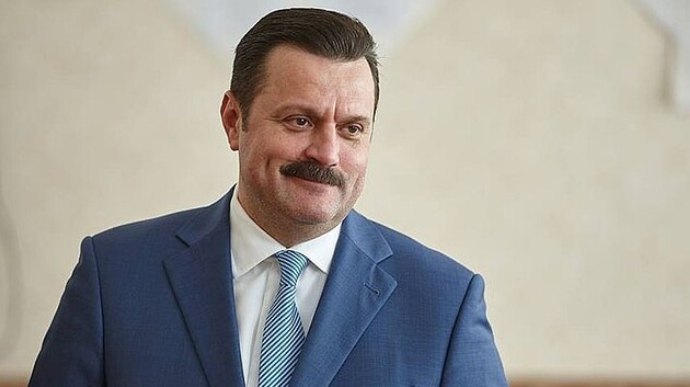
At the time, I wrote that this was an extremely dangerous scenario. Especially since Derkach graduated from the FSB Academy after the collapse of the USSR. For me, this was a clear signal. After that publication, he began to threaten me. This can be confirmed by journalist Yuliya Mostova, then Deputy Minister of Energy Yuriy Nedashkovskyy, and Head of the State Nuclear Regulatory Inspectorate Olena Mykolaychuk. Mostova even called and warned me about the need for security measures. My son was a teenager at the time, and the situation was really dangerous.
For some time, I had to hide in Ukraine, so we travelled around Crimea. Only when the National Security Council (whose secretary at the time was Yuriy Prodan) cancelled the Cabinet of Ministers' resolution on UkrAtomProm did the situation calm down a little. It was, of course, a dubious legal practice, but there was no other way out.
After that, I wrote two more articles: The Birth Traumas of UkrAtomProm and another one dedicated to Andriy Derkach. In the end, he was dismissed.
During his tenure, Derkach misused company funds, built churches of the Moscow Patriarchate in all nuclear cities and financed them.
Herman Halushchenko worked alongside him at the time, back in 2006–2007. He then returned to Energoatom in 2013, when Mykyta Konstantynov, whom Derkach had invited from the EBRD in London, was acting president.
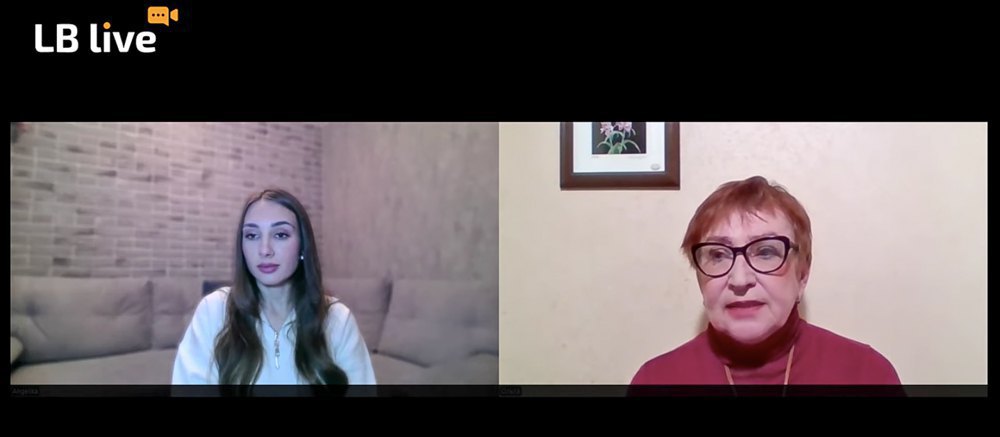
Another vice president, Oleh Kulynich, is currently under arrest for treason. Under Zelenskyy's administration, he was appointed head of the Security Service of Ukraine in Crimea (with an office in Kherson).
Derkach himself left for Russia in June 2022.
There was a real vendetta between us. I wrote an article about his doctoral dissertation — a complete compilation that he did not write himself. At that time, it was a widespread trend among officials to defend pseudoscientific works.
I followed all his media outlets: he had a TV channel, a radio station, and the newspaper Kyiv Telegraph. His back office was in a building on Ukrainian Heroes Square — he owned the entire floor.
I called him an Orthodox Chekist. Because he travelled from Sumy to the Bishops' Council, where Kilill Gundyaev was elected. The combination of FSB education and ostentatious Orthodoxy always seemed absurd to me, but there were many like him.
I also observed the conflict in Hlukhiv, where Michel Tereshchenko was mayor. Sumy Region was Derkach's fiefdom. During the elections, murders took place there, and bodies were found without heads. He had his own security companies in the region.
In 2020, his assistant Oleh Boyaryntsev joined Energoatom along with Derkach's team. In particular, Leleka, who headed the international cooperation department, had previously graduated from the Military Institute of Translators of the Russian Ministry of Defence, which trains personnel for the GRU and KGB.
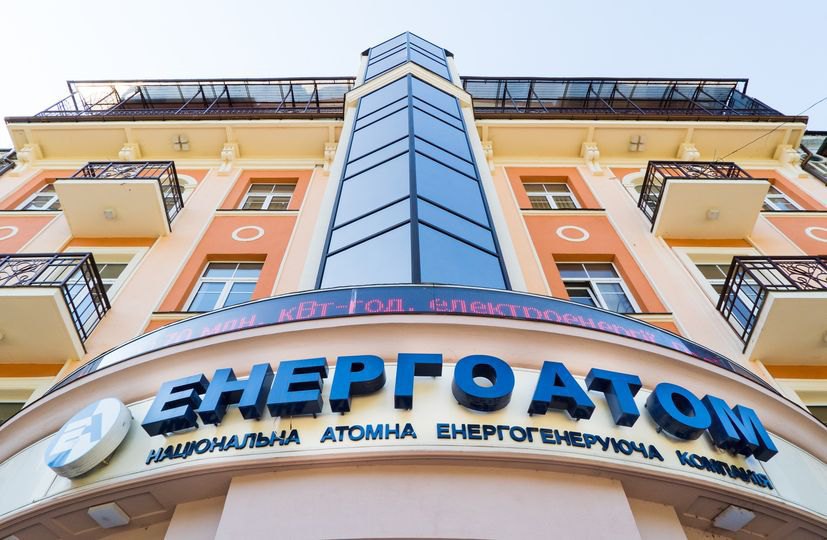
Serhiy Pushkar, who headed the legal department of Energoatom, is also a graduate of the Military Institute of the USSR Ministry of Defence (1991). He is currently a member of the National Energy Regulatory Commission.
In fact, Myronyuk was the head of the Ministry of Energy, not Hrynchuk
According to the latest information, he has left the country. MP Yaroslav Zheleznyak wrote that from 2010 to 2015, Serhiy Pushkar held various positions at the State Property Fund, at the same time that Ihor Myronyuk was the deputy head of the fund. Ihor Myronyuk is currently under investigation by the National Anti-Corruption Bureau of Ukraine (NABU). He is referred to as Rocket there.
Another interesting detail: when Derkach was dismissed, technical specialists were invited to his office to remove the wiretaps. There were even wiretaps on neighbouring buildings, which were removed from behind paintings, and the office was cleaned. In other words, all the KGB methodologies were used.
When this team arrived, they also conducted polygraph tests. They monitored mail, telephones, and wiretaps.
Boyaryntsev was in charge of the personnel department. I saw these subversive actions at the end of 2021, when he began to replace the deputy directors general of the nuclear power plant responsible for physical security. That was December 2021 – January 2022. And physical security is the SBU's quota. But the SBU has always been in contact with Derkach. His father was in charge there for a long time.
In January 2022, I received a table from my sources about this entire Russian network that entered Energoatom in 2020 — with passports showing when they crossed the border into Russia. And on 28 January 2022, I wrote a post about all these acquaintances, comrades, bandits, and prosecutors.
Until now, SBU General Yuriy Honcharov, who headed the Sumy Main Directorate, has been working at Energoatom. And Boyaryntsev was then a member of the Sumy City Council and controlled the Sumy Region all the time. This is very dangerous.
I understood back in 2021 that if there was an invasion, the Sumy Region could fall because everything there is under Derkach's control. And that's why I wrote it.
In March 2022, through my sources and contacts in the special services, I learned that they were following Boyaryntsev and recording his conversations with the directors of nuclear power plants. In particular, they discussed the location of air defence systems near nuclear power plants.
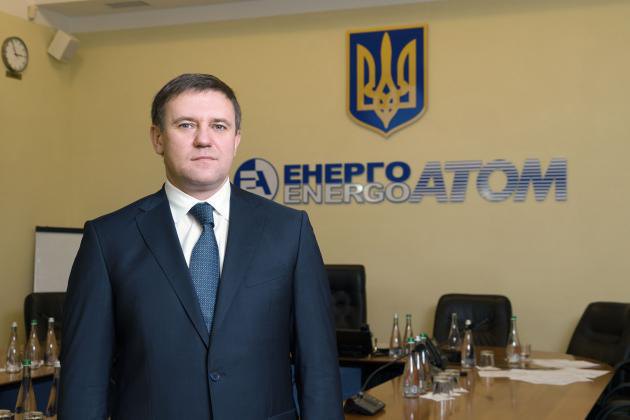
It has been in existence since 2012 — back then, during Yanukovych's time, the so-called project threat was approved. It is a highly classified document: potential risks are identified for each facility, and even civilian aircraft are prohibited from flying over nuclear power plants.
And when Boyaryntsev was detained (this is exclusive information, by the way), I was contacted by employees of the regional SBU office. They asked me to publicise the fact of his detention because, they said, he was already being taken to Kyiv and might be released there. And that's what happened.
After that, the harassment of me began. I was born in Russia, but my father is Ukrainian. They moved there during Stalin's reforms because our surname is Cossack and is listed in the Cossack registers of 1756. My aunts spoke Ukrainian and were born in Slobozhanshchyna in 1905, and my father was born in Northern Kazakhstan. I studied at the Mendeleev Moscow Institute of Chemical Technology.
Systematic harassment, threats, fake Wikipedia pages — all this happened in 2023. Posters saying "Kosharna — KGB" were stuck on my door. I was alone then, but now I feel the support of my colleagues, journalists and MPs.
As for Ihor Myronyuk, he created a separate network. Incidentally, he was an external advisor to Petro Kotin (former head of NAEK Energoatom, who ran the company from May 2022 to August 2025 — Ed.) and did not receive a salary from Energoatom. When Halushchenko was appointed minister, Myronyuk moved to the Ministry of Energy, where he actually still works, not Hrynchuk (current Minister of Energy Svitlana Hrynchuk. On 12 November, President Volodymyr Zelensky instructed the government to dismiss Minister of Justice Herman Halushchenko and Svitlana Hrynchuk. — Ed.).
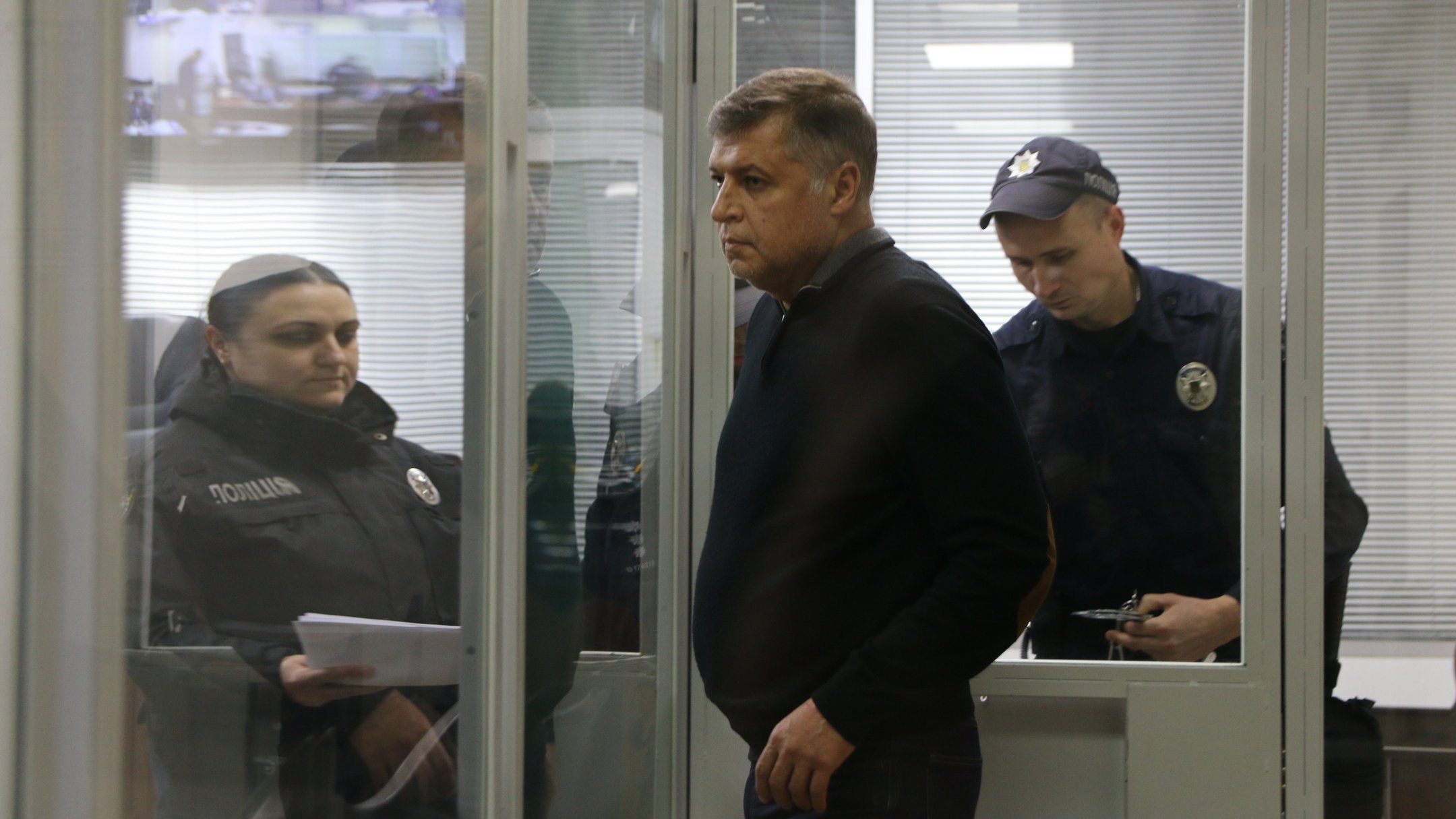
From 1985 to 1989, he was a classmate and close friend of Derkach, and from 2002 to 2006 and 2007 to 2012, he was his assistant. He has a son, Artur Myronyuk, whom he employed in the international projects department at Energoatom after his arrival. He had access to confidential documents. In particular, when the United States helped to install physical protection systems around nuclear power plants as part of a technical assistance project.
His brother, Dmytro Myronyuk, was the head of the Kyiv District Administrative Court and a confidant of the controversial judge Vovk. In addition, in 2020, Serhiy Rossokha joined the game; he was the director of the physical protection department. This is essentially a pool of prosecutors.
Rossokha was Kotin's advisor until the very end, until September, apparently this year. When Kotin resigned and sensed that something was amiss, he left for Vienna with his entire family. Boyaryntsev was already there. He left the country in February 2023, ostensibly on a volunteer mission, but was involved in an accident in the Czech Republic.
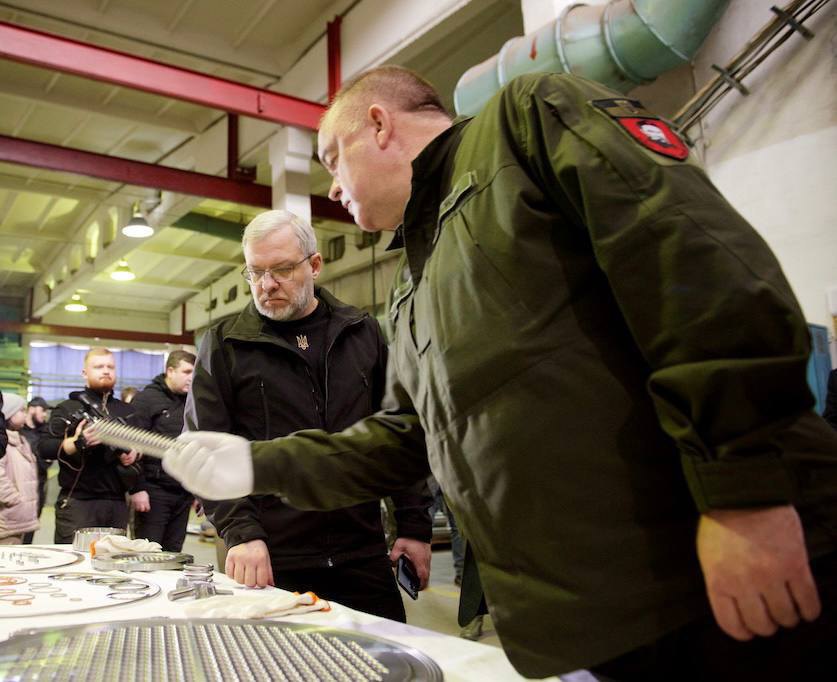
My special sources then reported: "Olya, write on Facebook that after that he moved to Vienna. His wife and child were in hospital after a serious car accident. He was looking for a flat to rent for Kotin's family in Vienna."
Vienna is a place where they are protected and extradition is impossible. This situation is very strange, and I don't understand why the SBU didn't notice it.
And now Herman Halushchenko, former Minister of Energy. Can we say that he is directly connected to Derkach?
Yes, he is. He worked at Energoatom three times and was involved in a dubious case back in 2013. At that time, Energoatom lost $28 million in a Russian court on a lawsuit that lawyers had previously successfully defended. It is unclear why the Russian court's decision was enforced at all. Then Halushchenko realised that the case was dubious and denied everything.
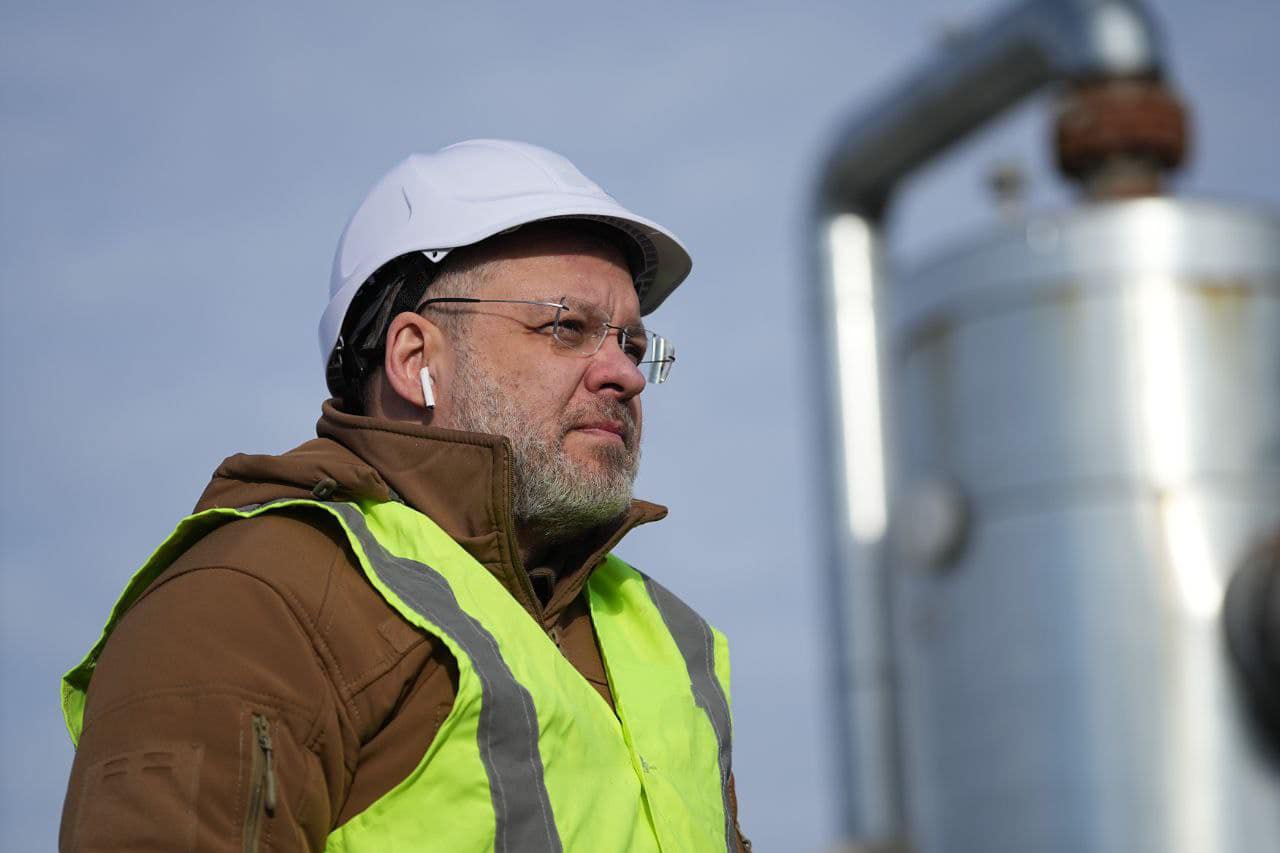
Svitlana Hrynchuk — Herman Halushchenko's protégé
And Svitlana Hrynchuk — the current Minister of Energy — was Halushchenko's deputy. She is also considered his protégé. Or is it Myronyuk who calls the shots there?
I know her personally: we worked together on an expert council when she did not yet hold public office, when Olha Buslavets was acting as Minister of Energy. She is very intelligent, but her specialisation is climate change and ecology.
When she was appointed deputy, I advised her not to take the position because the system is corrupt. My sources at the Ministry of Energy confirmed that Halushchenko was her mentor, took her to all the meetings, and brought her up to speed.
Then he sent her to the Ministry of Ecology. Environmentalists say that she has done a lot, in particular for the analysis of Ukrainian legislation in the field of environmental protection, and presented this result to the European Commission.
There are various rumours about their relationship, but in fact, Myronyuk is the one who runs the show there. Or rather, he used to run the show — he has already been detained.
The situation is such that Svitlana Hrynchuk is not completely independent in the energy sector — she is dependent on the system. But I approve of some of her appointments, such as the appointment of the director general of the Chernobyl Nuclear Power Plant.
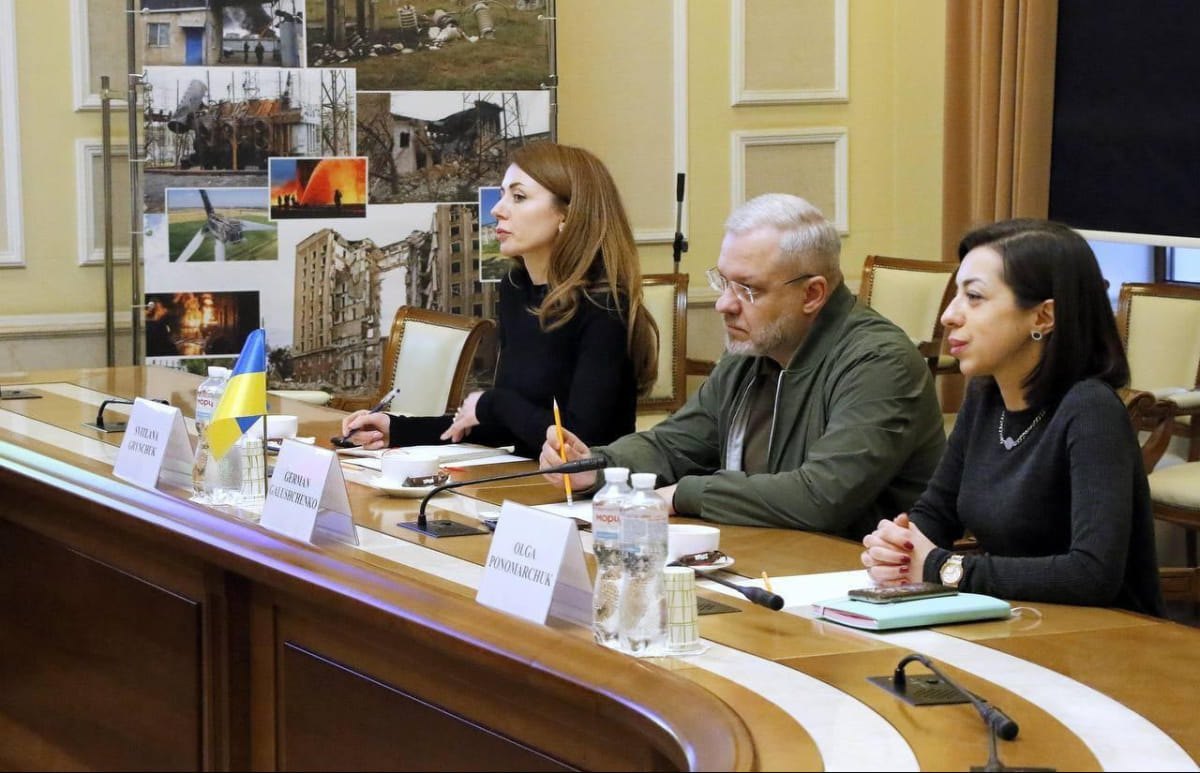
While the connections between all the individuals you mentioned are understandable, it is unclear how Tymur Mindich, who had no connection to the energy sector, became involved in this scheme. Do you know how he became involved in this corruption scheme?
I only know from journalistic investigations. But I know for sure that in 2020, Serhiy Shefir was in charge of this. Then there was Rostyslav Shurma. I know that he held meetings with representatives of the Ministry of Energy, Energoatom, and the NEURC and gave out instructions.
When he resigned, the Mindich era began. He had a business in the energy sector through his brother Leonid — Kharkivoblenergo and others. A criminal case has already been opened against Leonid in relation to Kharkivoblenergo. That is how Tymur Mindich appeared in the scheme in September 2024.
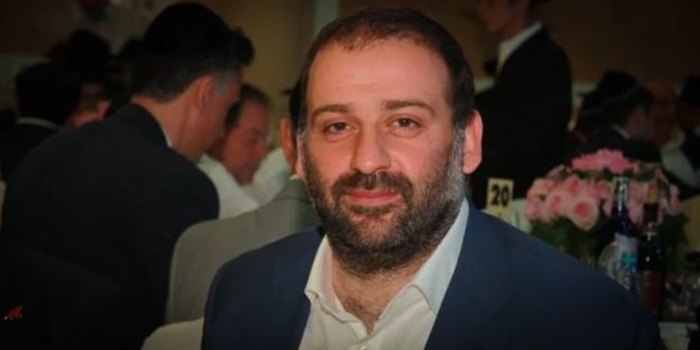
As far as I know, there is now a former prosecutor from Transcarpathian Region — Yermak's deputy. Formally, he has functions similar to those of Shurma: to keep the head of the president’s office informed of what is happening. He calls companies such as Ukrenergo and Energoatom to find out what is going on. But in fact, Tymur Mindich is the one who controls everything.
Suppliers were required to pay 30-50% kickbacks even for work that had already been completed.
If any of the readers did not understand, Tymur Mindich appears in the NABU investigation under the code name Karlsson. Take a closer look, it refers to receiving illegal benefits, i.e. bribes.
As far as I understand, the scheme itself consisted of the fact that, due to martial law, Energoatom has the legal right not to repay debts to contractors who supply equipment or provide services.
Accordingly, the criminals involved in the corruption scheme traded on payment, saying, "We will pay you if you give us a 10-15% kickback." Over time, their appetites grew, and they demanded more and more.
But it all started when this whole clique was appointed to Energoatom. I personally know several certified suppliers who are on the official list. This is serious equipment that must meet technical requirements.
Some of them did the work under the previous management, but never got paid. They were told straight up, "We'll pay you if you give us a kickback." And it's not 10–15% like the journalists wrote, but 30–50% for some contracts.
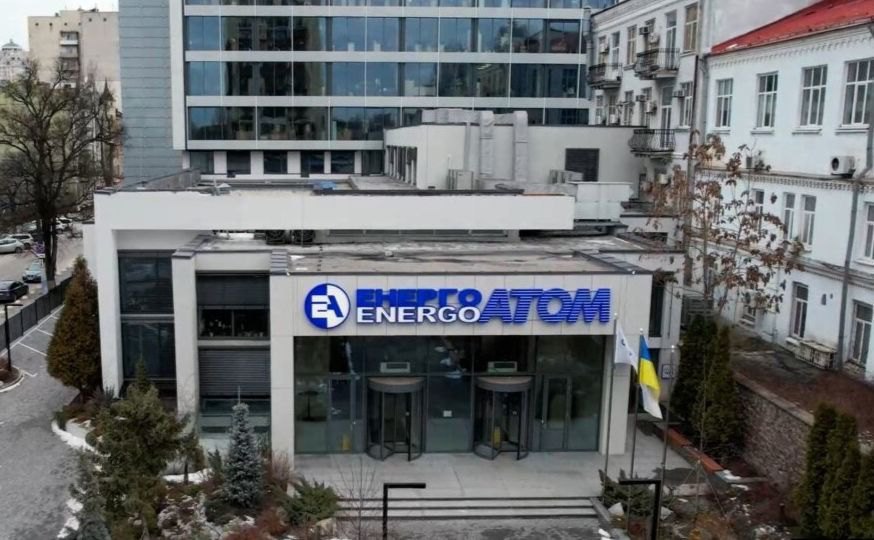
One well-known company refused to participate in the scheme, diversified its activities, and changed direction. I even have their letter to the Cabinet of Ministers for 2020 or 2021 somewhere on Facebook.
Then they demanded kickbacks even for work that had already been completed: the equipment was installed, but they did not pay. And this system became a stream. Therefore, 10-15% is still reasonable, as they say. In reality, the percentages were much higher.
There was even corruption involved in getting on the list of suppliers.
Today, Maksym Khlapuk wrote about how they insisted that Energoatom be excluded from the order of the Ministry of Strategic Industries. The company got there fraudulently by submitting false documents claiming to have a contract with the National Guard related to the military. It was all fake.
I hope that the temporary investigative commission, in which Khlapuk works, will continue its efforts to exclude Energoatom. Especially since the company is now profitable.
The financial statements are closed, but I know that at the end of 2024, the net profit was 1.3 billion. The Cabinet of Ministers allowed these funds to be used for bonuses to the supervisory board (which met for the first time only in December 2024) and to repay debts to contractors.
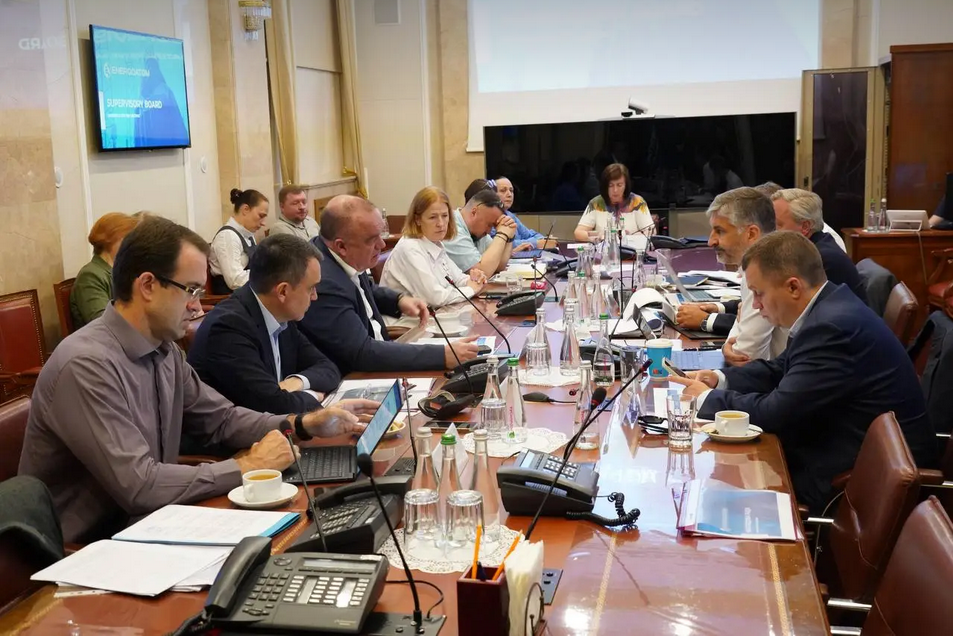
This year, in my opinion, profits will be even higher. But not a single hryvnya of dividends has been transferred to the state budget — unlike Ukrhydroenergo or even Naftogaz under Chernyshov, which showed large profits and paid dividends, even though it did not purchase gas.
But these profits are only on paper. When winter began, gas had to be imported at high prices to complete the heating season. And now, after the shelling, we again need large volumes of imports. This amounts to billions of dollars.
I read that we need about $2 billion and that gas must be pumped in daily, because previously the underground storage facilities had reserves, but now they are only 60% full. The shelling has made the situation critical.
The physical protection system of the nuclear power plant was under the control of Derkach's people
For me, the worst thing about this story is that there is still a connection with Moscow. Some of the money comes from there. The connection with Derkach has been preserved. It's scary: we are at war with Russia, and they still have access to classified information. What could this lead to, Ms Olga?
Firstly, I can see that it is already having consequences. I believe that the Security Service of Ukraine is currently investigating the circumstances of the occupation of the Zaporizhzhya Region. Everyone is writing about how Enerhodar was surrendered, that Kotin made some phone calls there, allegedly telling people not to resist. I don't know, let the Security Service of Ukraine prove it.
Secondly, Russia knows about the physical protection systems because Boyaryntsev was in charge of all the personnel and appointed people. Until he was detained and brought to Kyiv, nothing changed.
They removed Pavlo Pavlyshyn from his position as CEO of the Rivne NPP in 2023. Because he realised that when the management of the Khmelnytskyy NPP was hiding in a shelter, there was no coordination between the CEOs of the NPPs.
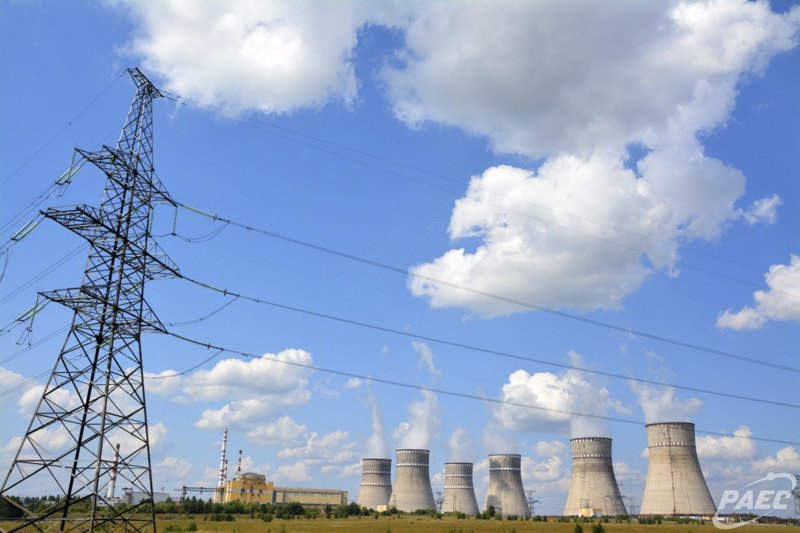
The Rivne Nuclear Power Plant was also under threat, and Pavlyshyn himself organised its defence. He communicated with law enforcement agencies, which did not please the leadership of the National Guard, so he was dismissed.
I was also struck by the arrogance in the tapes, where the criminals discuss postponing the construction of protective structures. They said, "It's not the right time because there's not enough kickback." And at a time when the energy infrastructure is destroyed, people are sitting without light and heat, it's just horrible. And what could this delay lead to? After all, every week is important.
There are open distribution devices: transformers, nuclear power plant power delivery systems. They are located around the perimeter, and so far Russia is not targeting them. But these devices are also under attack.
They also cut corners on the gabions, the first level of protection with sand. There is an investigation into this: large sums of money were spent on bags and sand, but the work was done poorly.
There is no spare equipment. Last summer, two transformers burned down at the South Ukrainian Thermal Power Plant. Why didn't they announce tenders for procurement? Because it takes time to manufacture them.
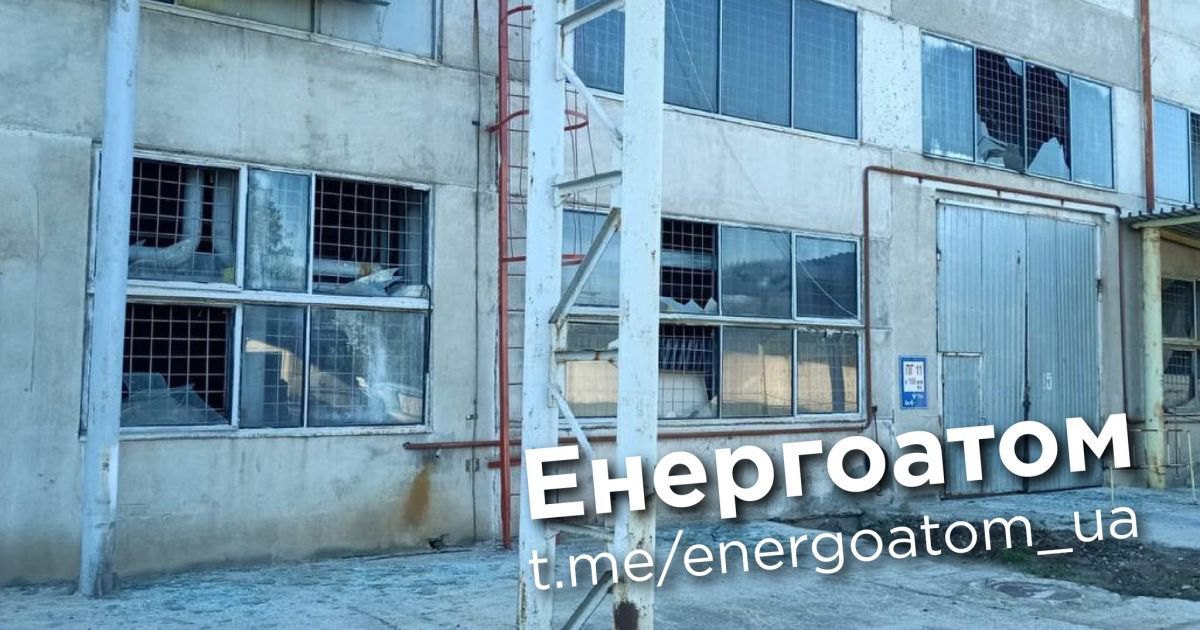
What they spend the money on is unknown. Financial reports are currently unavailable. Kucherenko's commission has set depreciation deductions at 2.8 times higher! This is nonsense, because the longer the operating life, the lower the deductions should be. And the design life of the nuclear power plant has already been exhausted. The deductions should go towards investments and new capacity.
So, somewhere around 30 billion has been lost in operating expenses, and no dividends have been shown. It's a sad story, unfortunately.








